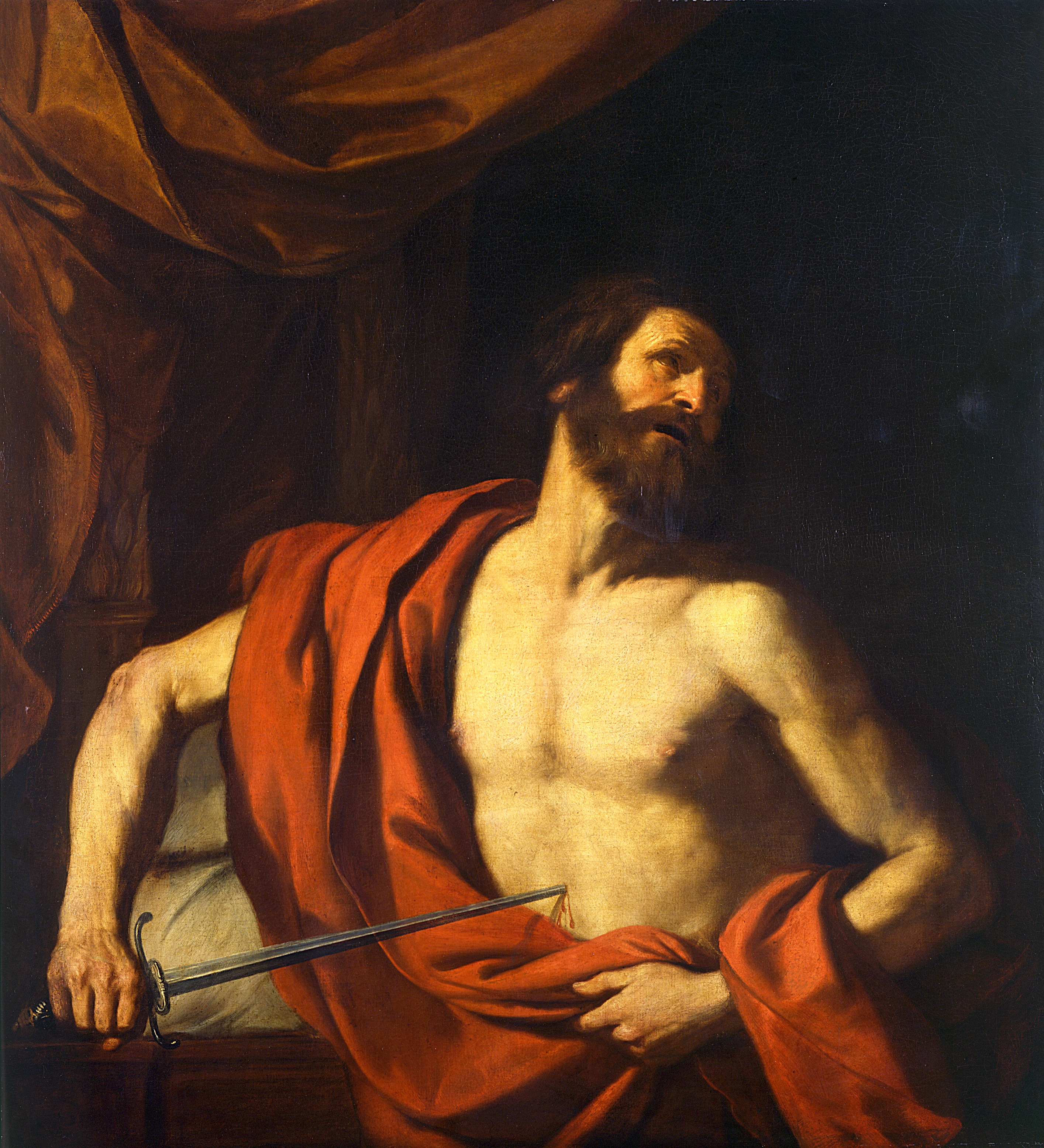
Click here to view image
Death of Cato
Maria Brignole-Sale De Ferrari 1874 Genova - donazione
Giovan Francesco Barbieri, detto il Guercino (Cento, 1591 - Ferrara, 1666)
painting
PR 61
Unità di misura: cm; Altezza: 118; Larghezza: 107
olio su tela
Il Guercino (Giovanni Francesco Barbieri, 1591-1666) - Cento - 1991<br>Genova e Guercino. Dipinti e disegni delle civiche collezioni - Genova - 1992<br>Guercino. Il mestiere del pittore - Torino - 2024
The artist's account book shows that a deposit of 20 scudi was paid for this painting on 22 November 1640, while the balance of 55 scudi was recorded on 7 December 1641; in both cases, the name of the client is specified: the lawyer Marcantonio Eugeni, who, two years later, paid Guercino a similar amount for a Death of Seneca, which has been lost but was clearly conceived as a companion piece to the work in question. The work was then identified as the “painting on canvas depicting Cato Utecenze with a gilded frame” recorded in the post-mortem inventory of Cardinal Giovanni Battista Pallotta in 1668 (Boccardo in Caldarola 2009, p. 120). It was therefore from the cardinal's niece and heir that the painting was purchased by Giovanni Francesco I Brignole-Sale, certainly before 1684, the year in which it appears in the inventory of the latter's assets (Tagliaferro 1995, p. 299). There are two known drawings, both in pen and ink, related to this subject: one in the Royal Library at Windsor (inv. No. 2816) where, compared to the painting, Cato's right hand is raised so as to thrust the sword into his side; the other, preserved at the Musée des Beaux-Arts in Dijon (inv. No. D. G. 565), presents, in analogy with the canvas in Palazzo Rosso, a curtain on the left and the right arm lowered (Boccardo in Genova 1992, p. 70). The painting depicts Cato wearing a red cloak and stabbing himself in the stomach.




